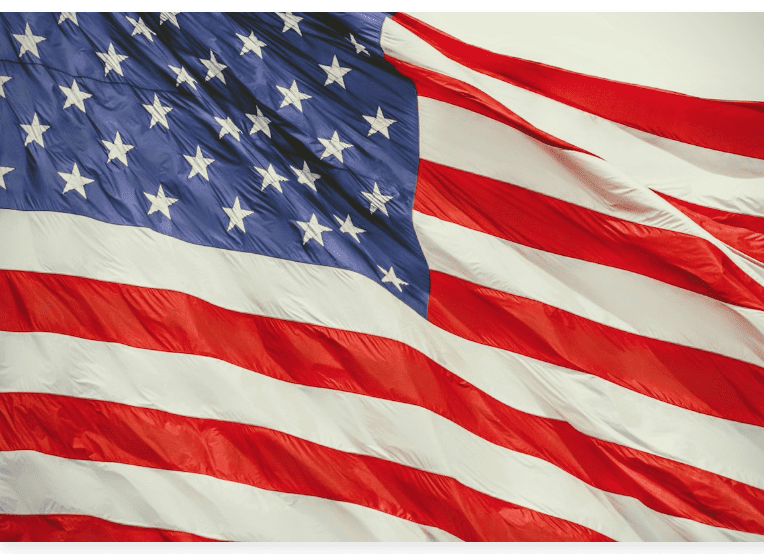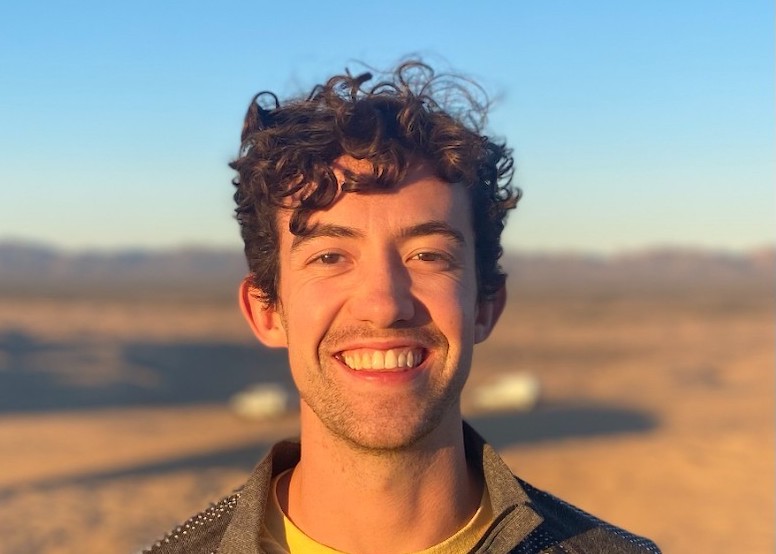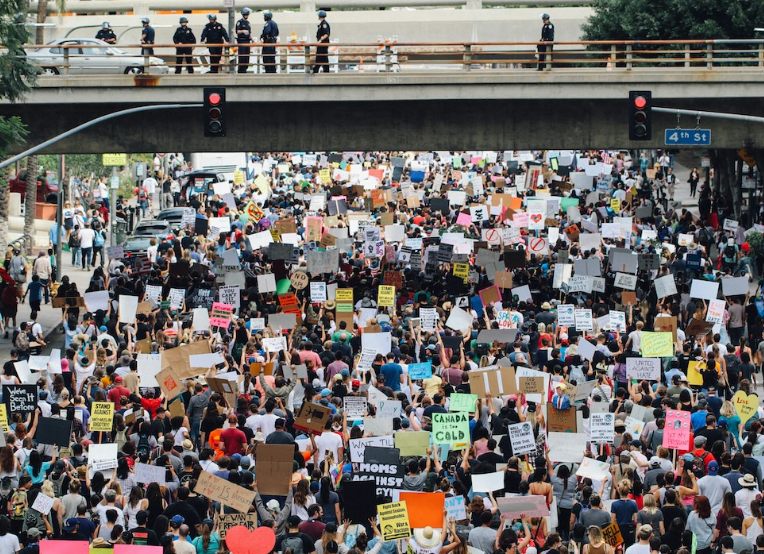Do Red and Blue States Walk Their Politicians’ ESG Talk?
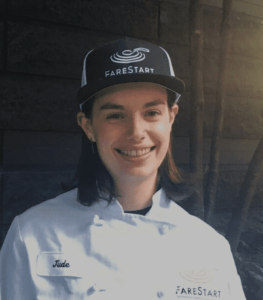
Jude Watson, MBA 23, worked as a chef before founding Cooks for Black Lives Matter.
Haas Voices is a series that highlights the lived experiences of members of the Berkeley Haas community.
Jude Watson, MBA 23, never intended to become a social entrepreneur. But that was before the former chef founded Seattle-based Cooks for Black Lives Matter, and raised $100,000 by selling CSA (community-supported agriculture) boxes of gourmet treats donated by cooks, restaurants, and farmers to support Black-led community organizers. We interviewed Watson about the power of community organizing, and their experiences as MBA Association student body president and as a transgender student at Haas. (Jude uses the pronouns they/them/theirs)
Where did you grow up?
I grew up in Seattle on Capitol Hill, which is the gayborhood of Seattle. My mom’s a hair stylist and my dad does a lot of climate justice work. I had a very socially motivated family and that shaped a lot of how I grew up. I felt very connected to the community in a lot of ways because both my parents are firmly rooted in Seattle and very present in our community.
Did you become politically active at a young age?
Yes, at age 16. When I realized I was queer, and especially when I realized I was gender expansive, I got very involved with local queer youth organizing. There was this amazing group of queer young people who were trying to start a community center for ourselves. A lot of LGBTQ spaces tend to be bars, so there aren’t many inclusive places for young queer people. We founded the first youth-led LGBTQ community center in Seattle with large grants from the City of Seattle and the Point Foundation. That period of my life was a mind-blowing crash course in community organizing. I also met and was mentored by trans adults for the first time, which was very meaningful and helped me imagine a future for myself.
Sounds like that was a very open and formative environment.
Definitely. I learned so much about social justice issues, especially around race, class, and disability. We were a diverse crew and it was a very energizing organizing community to be a part of. While doing that organizing, I graduated from high school when I was 16, and did an early entrance program at the University of Washington, where I made my own major in the History of Social Movements by pulling together classes in history, ethnic studies, women and gender studies. It was a great way to learn how social changes happens over time in different social contexts, and informed my work with Queer Youth Space.
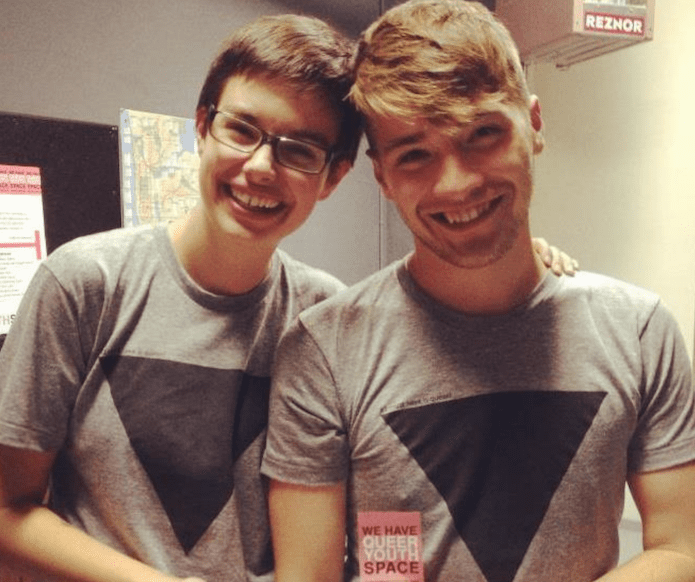
As a teen, Watson helped found the first youth-led LGBTQ community center in Seattle.
What did you see yourself doing after graduation?
I saw myself doing social work and community organizing with young people, which I pursued for a couple years after I graduated. But I also craved more creative work, so at age 22 I took a very abrupt left turn to pursue a career as a chef. I left my job working with young people and got a job as a restaurant prep cook, and then worked my way up to a chef-level position for the next seven years. I even spent a summer learning traditional butchery in Italy from a third-generation pig farmer, which was mind blowing.
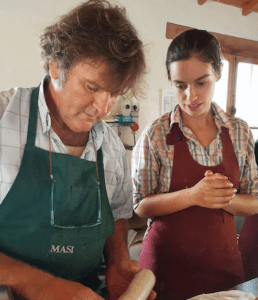
Watson learned to make sausage in Italy from a third-generation pig farmer.
What made you leave cooking?
Although I loved my career in kitchens in many ways, it was also an incredibly intense experience that I have a lot of ambivalence about. There are parts of my job that were life affirming and beautiful, and there were parts about it that were horrifying: toxic people, sexual harassment, gnarly injuries, constant violations of labor laws. At some point I was deeply burned out and knew, “It is not healthy for me to keep doing this.” But I still deeply love cooking. I’ve done some elaborate dinner parties for fellow Haasies.
So how did you end up in business school?
Seattle was the first city that got COVID in the U.S., so we shut down our restaurants before everyone else did. At that point, I turned back into community organizing and founded the social enterprise Cooks for Black Lives Matter, which has raised over $100,000 for local Black-led community organizing. Although at the time I just felt like I was doing something to be useful during such a dark time, I eventually realized, “Oh, I’m an entrepreneur now. I’m genuinely good at this,” and I wanted to build up those skills more. I contemplated a master’s in social work or public policy, but I thought it would be a bigger stretch for me to learn more about business.
Are you happy with that choice?
I’m so glad to be at Haas. It’s unbelievable the amount of opportunities that exist in business school. You have access to so much, which is often unbelievable to me coming from the service industry where you’re always given the bare minimum. One of my best experiences at Haas was in Lean LaunchPad last semester, where I was on the team with MBA student Carlson Giddings, helping her start a sweet potato flour company. I did all the recipe development for our team, and learned so much about the entrepreneurship side of the food CPG industry from entrepreneurship experts with decades of experience. During that class, I got to make a short video about our project and get editing help from Ralph Guggenheim, one of the co-producers of Toy Story and a mentor in the class. That’s one of those opportunities that, if I wasn’t at Haas, I would never in a million years have had access to.
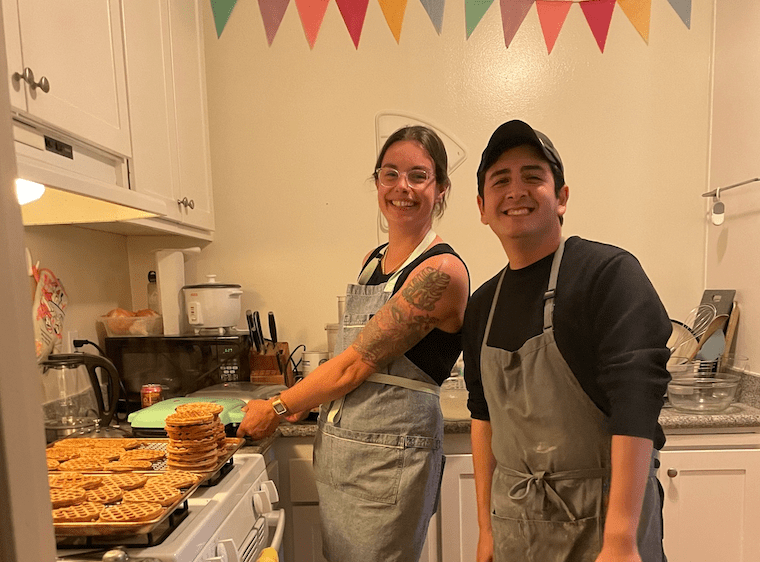
Watson and classmate Alex Angarita making waffles using sweet potato flour developed by Carlson Giddings, MBA 23.
You’re an active student leader at Haas. What’s that been like?
Although I would love to find out that I’m wrong about this, I believe I’m the first ever out transgender person to be the student president of an MBA program. It’s been a huge priority for me to have more conversations about trans identity at Haas. Via Abolencia, MBA/MPH 23, is one of my best friends, a fellow non-binary student here, and a co-president of Q@Haas. Together, we ran an event called Trans Futures, featuring a panel of trans advocates from public health, consulting, and community organizing, which was such a moving experience. The vast majority of the time, I’m the only trans person in the room at school and at work, which is a fairly exhausting experience. To create a trans-led space at Haas was good for my heart. It’s powerful for my classmates, most of whom have never seen eight trans people together before in their lives, to get to listen to these incredible activists reflect together on their work and their lives. That is by far the event I’m most proud of running at Haas.
Any suggestions for how our community members can be better allies to the trans community?
Overall, I would say read trans authors and watch media made by trans people, because I think what many people are lacking is empathy for our life experience. Follow some trans people on social media, and in general gain a more casual familiarity with the language we use and the struggles and successes a lot of us share. We’re not a huge percentage of the population, (although the number of people that identify as gender expansive is growing as more people feel comfortable coming out), so cis people need to put in more effort themselves to build their familiarity and comfort with trans people.
Posted in:
Topics:
